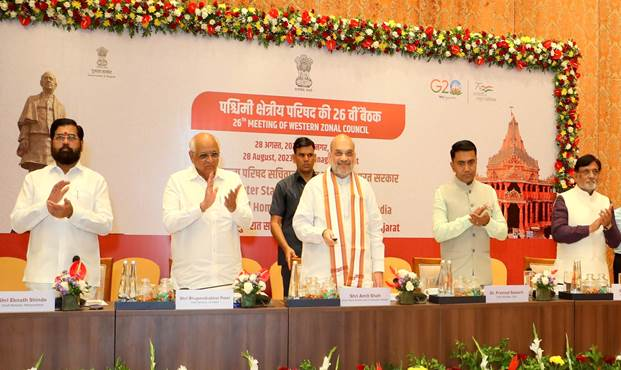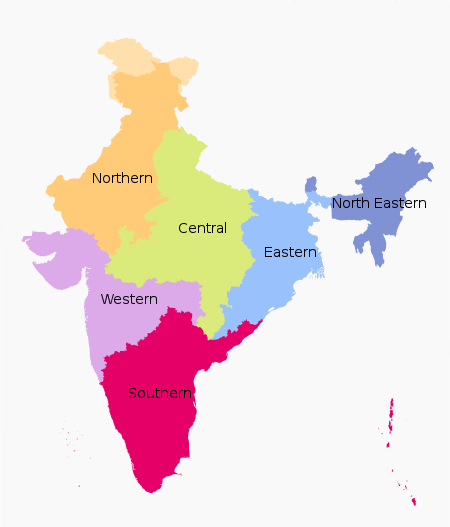





Copyright infringement not intended
Picture Courtesy: PIB
Context: The Union Home Minister chaired the 26th meeting of the Western Zonal Council in Gandhinagar, Gujarat. The Western Zonal Council includes the states of Gujarat, Goa, and Maharashtra, as well as the Union Territories of Dadra and Nagar Haveli and Daman and Diu.
Details
Zonal Councils
5 Zonal Councils
|
North Eastern Council (NEC) ● It is a statutory advisory body, established under the North Eastern Council Act of 1971. ● The council includes the eight states of the Northeast: Arunachal Pradesh, Assam, Manipur, Meghalaya, Mizoram, Nagaland, Tripura, and Sikkim. Initially, Sikkim was not part of the council, but it was added in 2002, bringing its total membership to eight states. ● The NEC primarily aims to facilitate the economic and social development of the northeastern region of India. ● The members of the council are represented by their respective Chief Ministers and Governors. ● The headquarters of the North Eastern Council is located in Shillong, and it operates under the Ministry of Development of North Eastern Region (DONER) within the Government of India. ● The NEC's primary role is to act as a forum for coordinating and planning development activities in the northeastern states, with a focus on areas like infrastructure, connectivity, economic growth, and social welfare. It plays a crucial role in addressing the specific developmental needs and challenges of the region. |

Picture Courtesy: Wikipedia
Composition of the Zonal Councils
Key Functions
Significance
Challenges
Way Forward
Conclusion
Must Read:
POSHAN Abhiyaan: https://www.iasgyan.in/daily-current-affairs/poshan-abhiyaan
|
PRACTICE QUESTION Q. What is the role of the Zonal Council under the Indian Constitution, and what is its significance in the context of India's federal system? What are the key challenges faced by Zonal Councils, and what measures can be taken to address these challenges and enhance their effectiveness in the future? |




© 2026 iasgyan. All right reserved